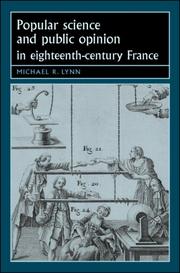| Listing 1 - 2 of 2 |
Sort by
|
Book
ISBN: 0271088370 0271088354 9780271088358 9780271088372 9780271087030 027108703X Year: 2020 Publisher: University Park, Pennsylvania
Abstract | Keywords | Export | Availability | Bookmark
 Loading...
Loading...Choose an application
- Reference Manager
- EndNote
- RefWorks (Direct export to RefWorks)
The impetus for literary creation has often been explained as an attempt to transcend the mortality of the human condition through a work addressed to future generations. Failing to obtain literal immortality, or to turn their hope towards the spiritual immortality promised by religious systems, literary creators seek a symbolic form of perpetuity granted to the intellectual side of their person in the memory of those not yet born while they write. In this book, Benjamin Hoffmann illuminates the paradoxes inherent in the search for symbolic immortality, arguing that the time has come to find a new answer to the perennial question: Why do people write?Exploring the fields of digital humanities and book history, Hoffmann describes posterity as a network of interconnected memories that constantly evolves by reserving a variable and continuously renegotiated place for works and authors of the past. In other words, the perpetual safeguarding of texts is delegated to a collectivity not only nonexistent at the moment when a writer addresses it, but whose nature is characterized by impermanence and instability. Focusing on key works by Denis Diderot, Étienne-Maurice Falconet, Giacomo Casanova, François-René de Chateaubriand, and Jean-Paul Sartre, Hoffmann considers the authors’ representations of posterity, the representation of authors by posterity, and how to register and preserve works in the network of memories. In doing so, Hoffmann reveals the three great paradoxes in the quest for symbolic immortality: the paradoxes of belief, of identity, and of mediation.Theoretically sophisticated and convincingly argued, this book contends that there is only one truly serious literary problem: the transmission of texts to posterity. It will appeal to specialists in literature, in particular eighteenth-century French literature, as well as scholars and students of philosophy and book history.
Creation (Literary, artistic, etc.) --- Mortality. --- Authorship --- Philosophy. --- Psychological aspects. --- Book History. --- Diderot. --- Digital Humanities. --- Eighteenth-Century France. --- French Literature. --- Posterity.

ISBN: 1526130459 9781526130457 9780719073731 0719073731 9780719073748 071907374X Year: 2017 Publisher: [Place of publication not identified]
Abstract | Keywords | Export | Availability | Bookmark
 Loading...
Loading...Choose an application
- Reference Manager
- EndNote
- RefWorks (Direct export to RefWorks)
In this book, Michael R. Lynn analyses the popularisation of science in Enlightenment France. He examines the content of popular science, the methods of dissemination, the status of the popularisers and the audience, and the settings for dissemination and appropriation. Lynn introduces individuals like Jean-Antoine Nollet, who made a career out of applying electric shocks to people, and Perrin, who used his talented dog to lure customers to his physics show. He also examines scientifically oriented clubs like Jean-François Pilâtre de Rozier's Musée de Monsieur which provided locations for people interested in science. Phenomena such as divining rods, used to find water and ores as well as to solve crimes; and balloons, the most spectacular of all types of popular science, demonstrate how people made use of their new knowledge.Lynn's study provides a clearer understanding of the role played by science in the Republic of Letters and the participation of the general population in the formation of public opinion on scientific matters.
Popularisierung. --- Naturwissenschaften. --- Science --- Science and civilization. --- Science. --- Public opinion. --- Public opinion --- Science and civilization --- Opinion, Public --- Perception, Public --- Popular opinion --- Public perception --- Public perceptions --- Judgment --- Social psychology --- Attitude (Psychology) --- Focus groups --- Reputation --- Natural science --- Natural sciences --- Science of science --- Sciences --- Civilization and science --- History and science --- Science and history --- Science and society --- Progress --- History --- 1700 - 1799 --- Geschichte 1740-1789. --- Frankreich. --- France. --- Bro-C'hall --- Fa-kuo --- Fa-lan-hsi --- Faguo --- Falanxi --- Falanxi Gongheguo --- Faransā --- Farānsah --- França --- Francia (Republic) --- Francija --- Francja --- Francland --- Francuska --- Franis --- Franḳraykh --- Frankreich --- Frankrig --- Frankrijk --- Frankrike --- Frankryk --- Fransa --- Fransa Respublikası --- Franse --- Franse Republiek --- Frant︠s︡ --- Frant︠s︡ Uls --- Frant︠s︡ii︠a︡ --- Frantsuzskai︠a︡ Rėspublika --- Frantsyi︠a︡ --- Franza --- French Republic --- Frencisc Cynewīse --- Frenska republika --- Furansu --- Furansu Kyōwakoku --- Gallia --- Gallia (Republic) --- Gallikē Dēmokratia --- Hyãsia --- Parancis --- Peurancih --- Phransiya --- Pransiya --- Pransya --- Prantsusmaa --- Pʻŭrangsŭ --- Ranska --- República Francesa --- Republica Franzesa --- Republika Francuska --- Republiḳah ha-Tsarfatit --- Republikang Pranses --- République française --- Tsarfat --- Tsorfat --- Γαλλική Δημοκρατία --- Γαλλία --- Франц --- Франц Улс --- Французская Рэспубліка --- Францыя --- Франция --- Френска република --- פראנקרייך --- צרפת --- רפובליקה הצרפתית --- فرانسه --- فرنسا --- フランス --- フランス共和国 --- 法国 --- 法蘭西 --- 法蘭西共和國 --- 프랑스 --- France (Provisional government, 1944-1946) --- Naturforschung --- Naturlehre --- Naturwissenschaft --- Wissenschaft --- Naturwissenschaftler --- Farans --- Frant͡ --- Frant͡s Uls --- Frant͡sii͡ --- Frantsuzskai͡a Rėspublika --- Frantsyi͡ --- Pʻŭrangs --- France --- La France --- République Française --- Französische Republik --- Empire Français --- Royaume Français --- Fränkische Republik --- Ṣārfat --- Repubblica Francese --- Franzosen --- advertisements. --- audience. --- course descriptions. --- economics. --- eighteenth-century France. --- geography. --- popular science. --- popularizers. --- public lectures. --- public opinion. --- theatrics. --- urban scientific culture.
| Listing 1 - 2 of 2 |
Sort by
|

 Search
Search Feedback
Feedback About UniCat
About UniCat  Help
Help News
News